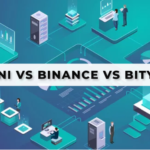Key Takeaways:
- WeChat, a Chinese messaging app owned by Tencent has banned accounts that promote non-fungible tokens (NFTs) and conduct secondary transactions with them.
- Sina, a Chinese news outlet, has spread the word about Tencent’s current policy regarding accounts that hype on various digital assets and sell token collections on WeChat.
Details of the ban by WeChat
WeChat, a Chinese messaging app owned by Tencent that has 1.2 billion active users, has banned accounts that promote non-fungible tokens (NFTs) and conduct secondary transactions with them.
Sina, a Chinese news outlet, has spread the word about Tencent’s current policy regarding accounts that hype on various digital assets and sell token collections on WeChat. Furthermore, WeChat has prohibited secondary transactions involving non-fungible tokens.
According to the article, the Chinese conglomerate Tencent intends to standardize and correct these accounts. Previously, Tencent and Alibaba set up their own NFT platform, despite the Chinese government’s ban on NFTs while allowing “digital collectibles.” Tencent’s move on WeChat was prompted by national regulations designed to prevent the spread of speculation based on NFT and crypto transactions.
Not a Blanket Ban
Official NFT accounts, on the other hand, which display collections of NFTs and provide primary transactions, can avoid being banned. To do so, they must submit documentation confirming their collaboration with a blockchain company that has been registered and approved by China’s Cyberspace Administration.
Tencent intends to monitor new trends in the NFT space, as well as relevant requirements from local regulators, in the future. Tencent intends to improve and adjust its rules as needed. WeChat banned accounts that conducted crypto payments or promoted ICOs in 2019.
Background
China has been a vocal opponent of cryptocurrencies and NFTs. It was added to the list of countries that have banned Virtual Digital Assets and mining last year. The government justified the ban by citing increased electricity consumption and environmental pollution. Since then, the country’s tech titans have been riding a wave of fear when it comes to dealing with digital assets.









